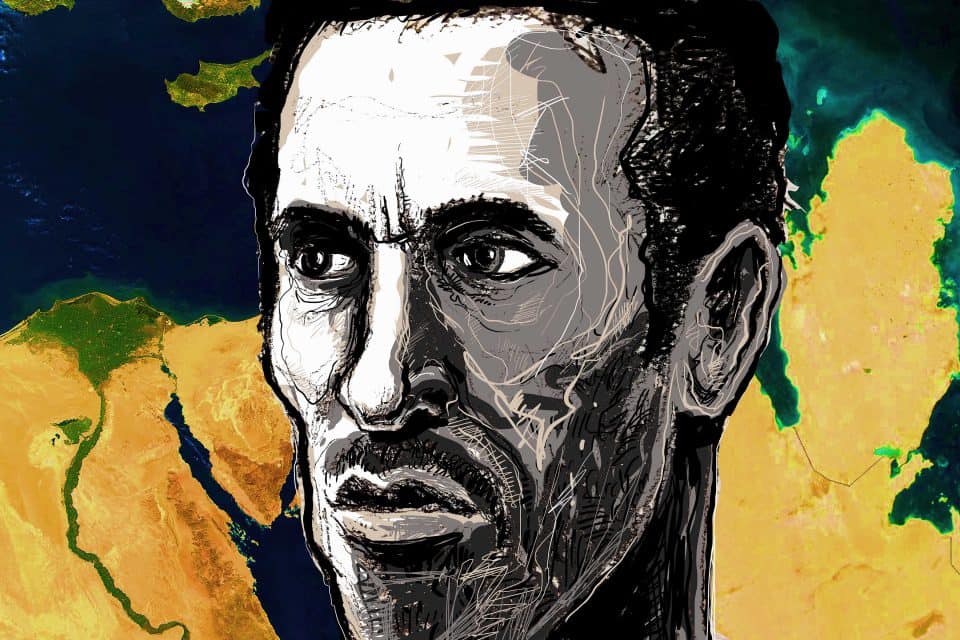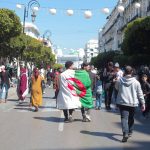The lost king: Aboutrika in exile
Is Mohamed Aboutrika, Egypt’s greatest footballer, a criminal or a persecuted dissident? The answer to that question reveals more about the politics of the person responding than about the Egyptian…
Author:
24 May 2019

When the Africa Cup of Nations (Afcon) kicks off at Cairo International Stadium in Egypt on 21 June, you won’t see Mohamed Aboutrika’s gaunt face in any VIP stands. You won’t see him anywhere in Egypt. He lives in exile in Qatar and cannot set foot in the country that still reveres him as a national hero.
There is a weird irony to this scenario because during his playing days, Aboutrika was acclaimed for his refusal to leave Egypt. This despite being a great enough footballer to interest any European superclub.
Aboutrika was the Pharaoh of the Pharaohs during their most dizzying dynasty – and that’s saying something, given that his comrades included such imperious freaks as the fabulous Mohamed Barakat, the mighty keeper Essam El-Hadary and the eternally cunning Ahmed Hassan.
Wearing the red of Al Ahly, Aboutrika claimed seven domestic league titles in a row and three CAF Champions League titles. Wearing the red of the national side, he won three Afcon titles in succession.
Aboutrika was two-footed, brainy as hell, always elegantly balanced. He could lash a free kick around a wall with Messi-anic precision. His deceptively languid style served to mask his fizzing speed of insight and movement. Until they learnt the hard way, opposition defenders couldn’t quite process his threat. He typified the stealthy refinement, the devastating economy of energy, that defined the Egyptian game at its peak.
From football icon to fugitive
For all his brilliance, Mohamed Salah, the new prince of Egyptian football, hasn’t come close to matching Aboutrika’s CV. And though Egyptians adore Salah, Aboutrika still outranks him on the public adoration scale.
So how does a national icon become a wanted fugitive? If you ask the regime of President Abdel Fattah el-Sisi, he did this to himself, by dodging $40 000 (about R570 000) in taxes. Last year, he was convicted and sentenced in absentia to a three-year prison term for this alleged offence; he will be jailed if he comes home.
It’s impossible to know whether or not he is guilty of the crime. But a tax-related case against a celebrity, especially when a fairly modest sum is involved, can often function as cover for the prosecution of another fight. In this case, it’s not difficult to connect the dots to Aboutrika’s real offence: his politics.
Related article:
Aboutrika’s first sin against Sisi and his security state was to publicly defend the Ultras Ahlawy, the Al-Ahly fan organisation that was a central and radical force in the 2011 Tahrir Square revolution that overthrew former president Hosni Mubarak.
After Mubarak fell, the Ultras Ahlawy were targeted by the still powerful military machine. Aboutrika quit football in the wake of the 2012 Port Said massacre, in which 74 Ahly fans were beaten or crushed to death in a coordinated attack by home supporters of Al-Masry fans.
The police abetted the horror by refusing or failing to open the stadium gates to allow Al Ahly fans to escape. This was seen as a deeply political massacre, not a routine clash between ultras. Afterwards, Aboutrika said he had seen Ahly fans killed inside the visitors’ changing room.
Caught in the middle
Soon enough, Aboutrika’s name was added to the Sisi regime’s watchlist of terror suspects, allegedly for donating funds to the Muslim Brotherhood. This religious and community organisation’s candidate, Mohamed Morsi, won the post-revolutionary presidential elections in 2012 before being toppled and jailed a year later by the Sisi-led military coup. Aboutrika denied making the transfer to the Brotherhood, which he said was made by a former business partner who had already left a joint venture in a travel agency.
There is no clear evidence of terrorist attacks or plots by the Brotherhood against the Sisi regime. Despite that, it has been systematically suppressed, with hundreds of its members jailed.
In September last year, 75 members were sentenced to death for their involvement in a largely unarmed protest in support of Morsi in 2013 that was mercilessly broken by Sisi’s forces. Security forces killed more than 800 Brotherhood supporters, while a small minority of armed Brotherhood sympathisers killed 13 police officers. The death sentences are being appealed and have not yet been carried out.
The Brotherhood is a mass organisation, combining a stated commitment to democracy and peace with a conservative Islamism. Its main political goal in Egypt is to end the secular dispensation that has dominated Egypt since the revolution of 1952. The Brotherhood aims to replace it with a state and a constitution guided by Islamic principles.
That is indeed a radical position, but the Brotherhood are not a terror organisation or an Isis-style death cult. They frighten Sisi because they have a huge (though currently suppressed) Islamist support base in Egypt and across the Middle East. Their enemies are not all rulers of secular states; Saudi crown prince Mohammed bin Salman is just as keen as Sisi is to destroy them.
A home in Qatar
Of all the governments of the Middle East, only Qatar supports the Muslim Brotherhood. It figures, then, that Aboutrika has taken refuge there, where he works as a football pundit for the beIN sports television network.
And if Aboutrika feels a bit cornered in Doha, he’s not alone, because Qatar is the polecat of the Arab world right now.
The royal family who rule Qatar are no democrats, but they have raised the hackles of various neighbouring autocrats. Last year, Sisi, Prince Mohammed and the emirs of the United Arab Emirates and Bahrain collectively imposed a blockade on Qatar, alleging it was fomenting terror in the region and the Syrian conflict.
The unspoken beef is that Qatar is seen to be fortifying Iran’s challenge to Saudi pre-eminence in the region. And Saudi dominance serves as a guarantee of security for less wealthy allies such as Sisi. The centuries-old Shia-Sunni conflict is of course a background and subtext to the Iran-Saudi showdown.
Then there’s the small matter of the 2022 Fifa World Cup to be held in Qatar. Fifa president Gianni Infantino had been pressuring Qatar to let Saudi Arabia co-host an expanded 48-team World Cup. Such a move would have boosted Fifa’s coffers and allowed Infantino to style himself as a Middle East peacemaker by brokering a rapprochement between Riyadh and Doha. But that won’t happen as Fifa couldn’t come up with a workable solution. Qatar will host the 32-team tournament alone.
So Aboutrika finds himself as an unwilling pawn on a board full of scheming kings. And with Sisi now permitted by Parliament and a referendum to rule Egypt until 2030, Aboutrika will not be home anytime soon.
You can also expect Salah to continue keeping his mouth firmly shut about politics, like almost every Egyptian citizen with any sense. From a South African vantage point, all this should make us feel pretty grateful that we don’t live in a military regime. Our footballers may be no match for Egypt right now, but our freedom is.

